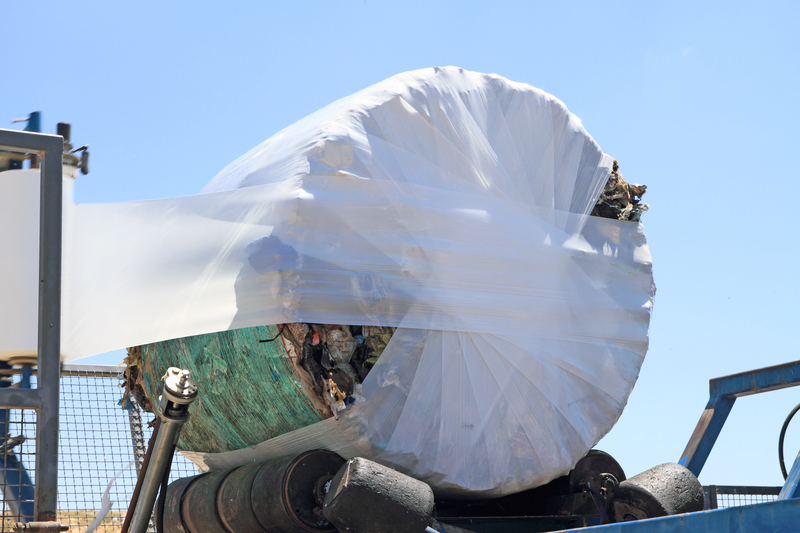Comprehensive Guide to Rubbish Waste Removal

Effective rubbish waste removal is essential for maintaining clean and healthy environments. Whether it's for residential, commercial, or industrial purposes, understanding the best practices and available services can make the process seamless and efficient. In this article, we delve into the various aspects of waste removal, offering insights into methods, benefits, and considerations to help you manage your waste responsibly.
Proper waste disposal not only keeps spaces tidy but also plays a crucial role in environmental conservation. With increasing urbanization and population growth, the volume of waste generated is steadily rising, making efficient waste management more important than ever. From recycling initiatives to professional waste removal services, there are multiple avenues to address the challenges posed by accumulating rubbish.
One of the key components of effective waste management is understanding the different types of rubbish generated. Categorizing waste into recyclable, non-recyclable, organic, and hazardous materials can streamline the removal process and ensure each type is handled appropriately. This segmentation not only aids in compliance with local regulations but also promotes sustainable practices.
Implementing rubbish removal strategies can significantly reduce the environmental footprint of both individuals and businesses. For instance, adopting curbside recycling programs or composting organic waste can minimize the amount of trash sent to landfills. Additionally, partnering with waste removal companies that prioritize eco-friendly practices can further enhance your sustainability efforts.

In the commercial sector, effective waste management is often linked to corporate responsibility and public image. Businesses that prioritize proper rubbish disposal demonstrate a commitment to environmental stewardship, which can resonate positively with customers and stakeholders. Moreover, efficient waste removal can lead to cost savings by reducing disposal fees and optimizing resource usage.
Residential waste management, on the other hand, focuses on making waste removal convenient and accessible for households. This includes providing adequate bins for different types of waste, scheduling regular pickups, and educating residents on proper disposal methods. Empowering individuals with the knowledge and resources to manage their waste effectively fosters a community-wide approach to environmental care.

Technological advancements have revolutionized the field of rubbish waste removal. Smart waste management systems equipped with sensors can monitor bin levels in real-time, optimizing collection routes and reducing operational costs. Additionally, recycling technologies have improved, allowing for greater material recovery and processing efficiency.
Another emerging trend in waste management is the circular economy model, which emphasizes reusing, repairing, and recycling materials to extend their lifecycle. By shifting away from a linear 'take-make-dispose' approach, the circular economy aims to create a more sustainable and resilient system that minimizes waste generation.
Government regulations and policies also play a pivotal role in shaping waste management practices. Compliance with local and national laws is essential for both individuals and businesses to ensure that waste is disposed of safely and responsibly. Staying informed about regulatory changes and proactively adjusting waste removal strategies can help avoid penalties and contribute to a cleaner environment.

The economic impact of efficient rubbish waste removal cannot be overstated. Proper waste management can lead to job creation in the recycling and waste processing industries, contributing to economic growth. Additionally, reducing the volume of waste sent to landfills can decrease the costs associated with landfill maintenance and operations.
Education and awareness campaigns are vital components in promoting responsible waste disposal practices. By educating the public about the importance of reducing, reusing, and recycling, communities can work together to tackle the challenges of waste management. Schools, community centers, and media outlets can serve as platforms for disseminating crucial information and encouraging sustainable behaviors.
Investing in waste removal infrastructure is another critical aspect of effective rubbish management. This includes developing adequate landfill sites, recycling facilities, and waste-to-energy plants that can process different types of rubbish efficiently. Moreover, ensuring that these facilities adhere to environmental standards is essential for minimizing their ecological impact.

Innovative approaches to waste management, such as zero-waste initiatives and extended producer responsibility, are gaining traction globally. Zero-waste initiatives aim to eliminate all forms of waste through comprehensive planning and community involvement. Extended producer responsibility, on the other hand, holds manufacturers accountable for the entire lifecycle of their products, encouraging them to design more sustainable and easily recyclable items.
The role of individuals in rubbish waste removal is equally important. Simple actions like sorting waste correctly, reducing single-use plastics, and opting for reusable products can collectively make a significant difference. By taking personal responsibility for waste disposal, each person contributes to a larger effort to preserve the environment for future generations.
In conclusion, effective rubbish waste removal is a multifaceted endeavor that requires cooperation from individuals, businesses, and governments. By adopting best practices, leveraging technology, and fostering a culture of sustainability, we can address the challenges posed by increasing waste generation and work towards a cleaner, healthier planet.
Looking ahead, the future of waste management holds promising advancements that will further enhance rubbish removal processes. Innovations such as AI-driven waste sorting, biodegradable materials, and advanced recycling techniques are set to transform how we handle waste. Embracing these developments will be crucial in achieving long-term sustainability goals.
Community engagement and participation are essential for the success of any waste management strategy. Encouraging local initiatives, volunteer programs, and collaborative projects can strengthen the collective effort to manage rubbish effectively. Building a sense of community responsibility fosters a supportive environment where sustainable practices thrive.
By prioritizing rubbish waste removal and integrating comprehensive strategies into daily operations, we can mitigate the adverse effects of waste accumulation and pave the way for a more sustainable future. Commitment to continuous improvement and innovation in waste management will ensure that we are well-equipped to handle the evolving challenges of waste disposal.

Ultimately, the goal of rubbish waste removal is not just about getting rid of unwanted materials but also about promoting a healthier and more sustainable environment. Through informed decisions, responsible practices, and a collective effort, we can achieve effective waste management that benefits both current and future generations.











